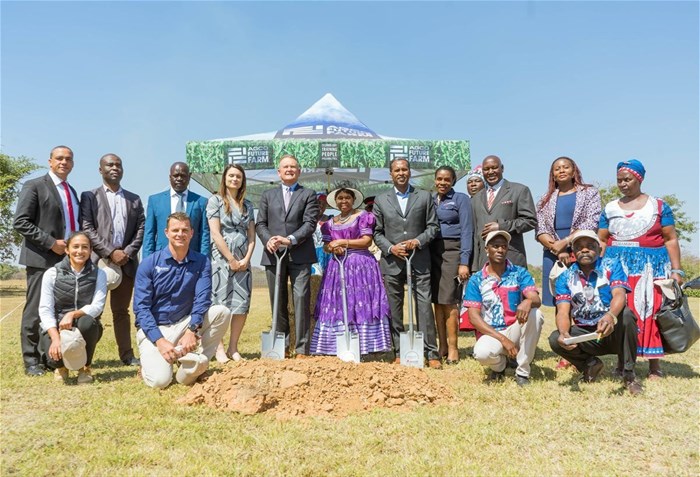
Top stories


Marketing & MediaAI changed how I work as a designer, faster than I expected
Emmanuel Naidoo, Ignition Group 4 hours




More news












ESG & Sustainability
Can Ramaphosa’s crisis committee solve South Africa’s water woes?














The announcement was made by Gary Collar, AGCO senior vice president and general manager, Asia Pacific and Africa (APA) and the Future Farm senior manager, Kalongo Chitengi, during a ceremony attended by Her Royal Highness senior chieftainess Nkomeshya Mukamambo II; Chongwe district commissioner, Robster Mwanza and Doreen Bailey, political and economic section chief at the US Embassy in Zambia.
Guests were welcomed by Nuradin Osman, AGCO vice president and general manager, Africa who emphasised the significance of AGCO’s Africa strategy to empower the continent’s farmers as global Agri-preneurship shifts focus to see Africa as the answer to global agricultural expansion and food security.
"When we conceptualised the Future Farm, our aim was to be a catalyst in the development of a sustainable and prosperous agricultural industry across the continent, with innovative solutions built around the needs of African farmers," explained Collar. "To achieve this we are designing our solutions with Africa in mind and ensuring that we can support our products and customers, locally."
The shift in focus is in line with AGCO’s vision for its business operations in Africa to develop and support a sustainable food production system, increase farm productivity by implementing modern farming techniques and develop a range of training courses for farmers, machine operators and dealers.
While a project such as the Future Farm is committed to advancing African farmers to be owners of profitable agribusinesses, AGCO understands that the private sector cannot achieve a sustainable agricultural sector in Africa alone. There are other constraints slowing the speed of progress in Africa that need to be tackled in parallel with governments.
"African governments must look at agriculture beyond the development agenda, but rather as a profitable industry that can boost the region’s economy," explained Osman.
The Government of the Republic of Zambia has identified Agriculture as central to its job creation and poverty alleviation strategy as the sector employs over 70% of the population and contributes 19% of the country’s GDP. The government is engaged in projects aimed at increasing the volume and value of Agricultural outputs produced and sold – particularly by smallholder farmers.
"I am so pleased that this development is happening in my chiefdom, for which agriculture is the main occupation. The AGCO tractor hire service and training piloted in my chiefdom have shown how better crop yields can be achieved and have already been positive for some of the farmers," noted her Royal Highness.
The cutting edge training facility was first launched in 2015 with an initial investment of 9 million US dollars and is designed to demonstrate the value of mechanization and best agronomy practices for both small and large scale commercial farming operations.